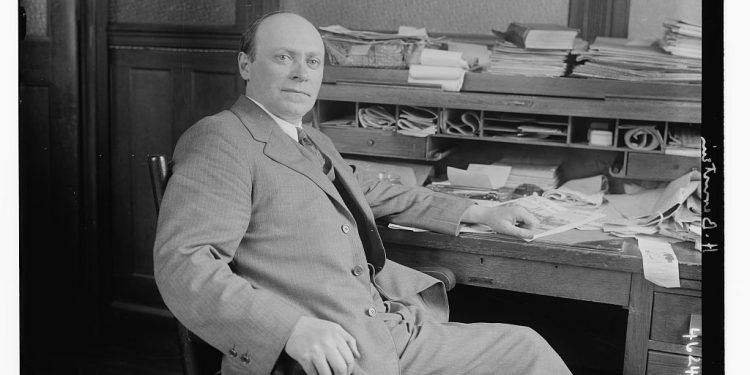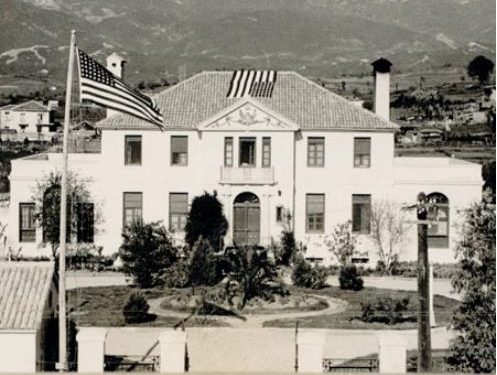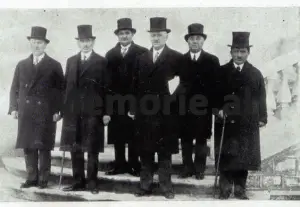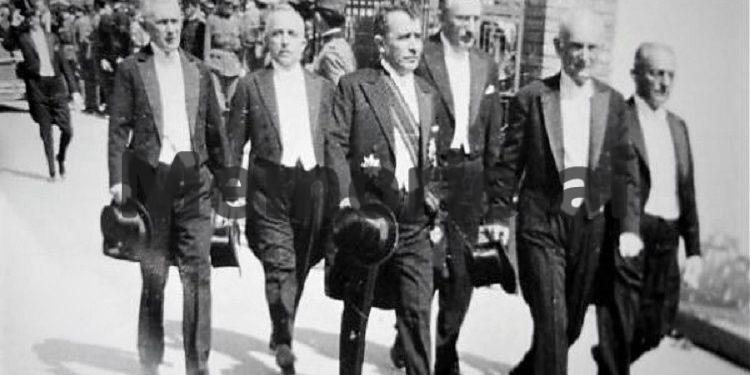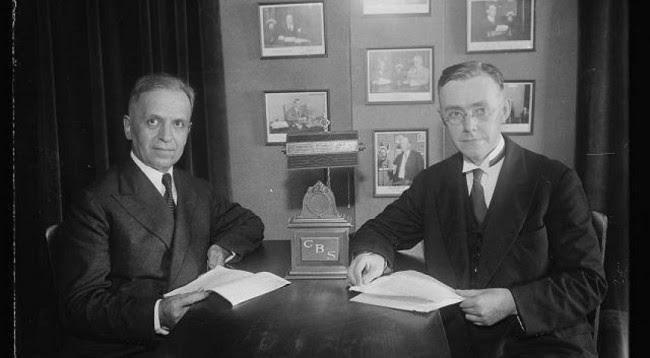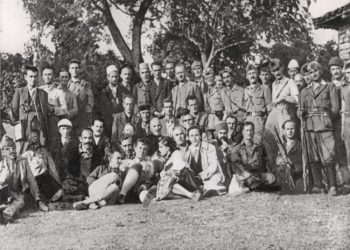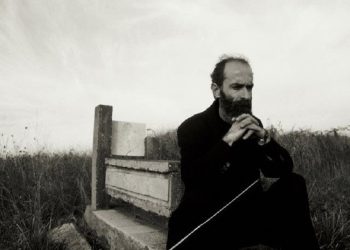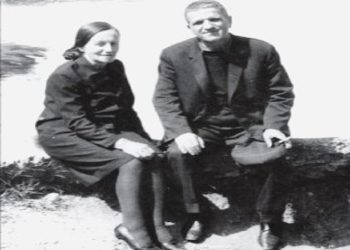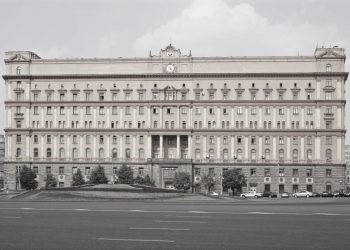By Prof. Dr. Uran ASLLANI
Memorie.al / Starting from July 28, 1922, when diplomatic relations between the USA and Albania first began, with Maxwell Black, in the office of commissioner, then with Ministers Plenipotentiary Grant Smith, within that year, continuing then with Charles C. Hart, Herman Bernstein, Post Wheeler and finally with Hugh Gladney Grant, the most philosophic has turned out to be Herman David Bernstein. In the almanac of American diplomats for Herman D. Bernstein, it is written: Israeli American writer, American correspondent and reporter, editor of American and English newspapers, American diplomat, minister plenipotentiary in Albania, translator from Russian.
The American diplomat of Israeli descent from Russia was born in the village of German settlers Neustadt Scherwindt, (Vladislavor) on the Don, on September 21, 1876. In 1893, at the age of 17, he immigrated to the USA, to the anointed, which was a well-known newspaper publisher. After finishing his studies in the USA, in 1900, he became a journalist and collaborated with several American newspapers of the time, such as “The New York Evening Post”, “The Nation”, “The Independence” and “Ainslee’s Magazine”. From 1908 to 1912, he was a journalist for the “New York Times”, but personally he also founded and published the newspapers and magazines “New London Day”, “The Jewish Tribune”, “Jewish Daily Bulletin”.
With the beginning of the First World War, in 1915, he came to Europe, as a correspondent of the “New York Herald” newspaper, to observe and report on the situation of Jews in the war zones. In 1917, he published the correspondence of the Russian Tsar with Kaiser Wilhelm, in the form of numerous telegrams, in the “Willy Nicky” column of “Celebrities of our Time”, which he later published as a book with a foreword by ex-president Theodore Roosevelt. In 1921, he published the books “History of a Lie” and “The Protocols of the Elders of Zion”. H. Bernstein is also known as one of the most famous translators of Chekhov, Tolstoy, Andreyev and Gorky. At the same time, he is excited by the actions of the Bolsheviks, who, initially, had Israeli political and state leaders, were against pogroms and other persecutions.
With this conviction, he participates in the pro-Soviet campaign in the American press. In the years 1919-1920, as a journalist, he participated in the staff of President W. Wilson, at the Peace Conference in Paris, where in close friendship with well-known philosophes such as colonel, advisor to President Charles House, senator Walter Evans Edge, diplomats Charles R. Crane, Fred Williams, Professors Paul Monroe, Drs. Telford Eriskson, diplomat Herman Bernstein acts like a true Albanian. Herman Bernstein served as minister plenipotentiary of the USA in Tirana, from March 11, 1930, to September 15, 1933. Recognizing the pro-Albanian stance of this diplomat, the reception given to him was special. (Attached to the article, we are publishing an original photograph from March 1930).
In that photo, all the American and Albanian personnel of the diplomatic mission, starting with Minister H. Bernstein, his wife Evelina, secretary Holmes, Albanians Loni Adhami, his wife Melpomeni, etc., are located on the steps of the Legation. In this photo are almost all the Albanian personalities of the time, starting with the Albanian ministers; Rauf Fico, Xhafer Ypi, Xhafer Vila, Hiqmet Delvina, Dhimitër Berati, Fuad Asllani, etc. During his time of service in Tirana, he tried and succeeded in attracting the interest of American journalists and scientists. These tourists visited Albania, even some of them two or three times and with the best impressions, write a series of very useful articles.
Such were dr. David Fairchild, botanist and official of the Department of Agriculture, since the end of June 1930, together with his friends, visit Albania, support and add useful recommendations for the development of agriculture, agricultural education and the Albanian countryside. At the same time, state dignitaries, such as the undersecretary of state for finance, Ogden J. Mills, along with a group of financial specialists, came to Albania, invited by Berstein. This group also gave valuable economic-financial advice for the Albanian state. To make Albania and its traditions even more interesting, the American minister brought to Albania, in July 1930, the well-known American musicologist and composer, Miss Stella Cushing.
The latter collected and collected many folk songs, rhapsodes and ballads. Simultaneously with Miss Cushing, the famous American writers and publicists, May Mott and Ethel Watts, visited every corner of Northern and Southern Albania and when they returned to the USA they published a series of articles and reports in Boston newspapers. A few months later, H. Berstein also brought to Albania the journalists Floyd Gibbons and William McNutt, from Chicago and Boston newspapers. Berstein’s activity in Albania is complex, but the most important, most meaningful part of it is the one related to his fundamental contribution to the establishment and beginning of the work of the American-Albanian Agricultural Institute of Kavaja.
The efforts of the great friend of Albanians dr. Telford Erikson to open and run a school for girls and boys in Kavaja, they managed to do it in just three years of work. The cessation of its activity was caused by the lack of American funds in Boston and the impossibility of state financial support. In continuation of this activity, an attempt was made to establish an educational institution by S. Irving, but this project was also neglected due to the world economic crisis. Therefore, due to the great need for an agricultural education of the Albanian youth, the full-power minister himself, Herman Bernstein, was engaged in this initiative.
He asked for the help of an American charitable association called “The Near East Foundation”, which during 14 years had carried out charitable activities in Syria, Palestine, Egypt, Turkey and Armenia, financially maintaining 17 educational colleges, mainly in the field of agriculture. The Near East Foundation, as early as 1927, were well informed about the urgent needs of the Albanian people, from a study conducted by the agricultural specialist dr. Luther C. Fray. On September 1, 1930, Dr. James L. Barton, NEF vice president, accompanied by dr. Barclay Acheson and on September 2, they meet Prime Minister Pandeli Evangjeli, along with them were H. Bernstein, dr. Archer and the Legate’s secretary, mr. Holmes.
The talks ended successfully. One day later, on September 3, the special project of the Albanian-American Institute was approved by the government, while the parliament would approve it a few days later, on September 15. Dr. played a major role in the foundation’s readiness to set up the school in Albania. James L. Barton, or as he was otherwise known; “The good old man”. The American minister relied on his help, dr. J. Barton, having been associated with Albanian problems since 1914, when as a friend of G. Fred Willams, he founded the philanthropic organization; “Albanian Relief Society”, with the sole purpose of collecting aid for the migrants of Vlora and sending them by a steamer to Albania. On October 18, 1930, the beginning of the construction of the “Girls’ School” was inaugurated, where up to 100 girls would learn, while a few days later, on October 29, the construction of the American Agricultural School was also inaugurated, for 100 boys.
On that occasion, the message of King Bird is read and speeches are given by James Barton, Hilë Mosi and H. Berstein; For the construction of these schools, 50,000 dollars were invested, of which the Albanian government paid 33%, while the rest was borne by the Near East Foundation, as well as by the philanthropist group dr. Harold Marshall. While the constructions in Kavaja continued, the teaching process as well as the teaching practices were never interrupted, Herman Berstein continued the cognitive and evaluation activity of the condition of Albania and its cities. He started visiting the main Albanian cities. On August 10, 1931, accompanied by Mehmed Konica, he visited Korça, where he was very pleased with the city’s achievements in education, culture and the patriotism they had shown.
He expressed these satisfactions with the telegram of thanks sent to prefect Abedin Nepravishta. From the end of August and during September, he also visited Shkodra, Vlora and Gjirokastër, being amazed by the Albanian hospitality and the wonderful nature of Albania. On September 12, 1931, the French newspaper “Le Temps” announced that Herman Bernstein had been elected one of the eight members of the International Diplomatic Academy, alongside the Indian Prime Minister Khan Bahadur, the German plenipotentiary ministers Von Wesendonk and Renwer, the Belgian Jansen, the Moroccan Ben Chabrit, etc.
On February 22, 1932, the 200th anniversary of George Washington’s birth was celebrated, and on this occasion, the American Legation held a reception, attended by Albanian dignitaries, as well as European diplomatic missions. On that occasion, Eqerem Libohova read the congratulatory telegram sent by King Zog to American President Hoover. After him, Herman Bernstein gave a speech, which we are quoting below, with some abbreviations:
“Today the American people celebrate the 200th anniversary of the birth of George Washington. His immortal name and work are honored in many countries, not only in the USA, but also by others, who know and appreciate the work of the master of American independence. We do not worship Washington as a flawless human saint, nor do we glorify him only as a Victorian hero in his military field, for although he had a small and ill-organized army that lacked food, ammunition and uniforms, he often turned his military defeats into ultimate victories……!
He strongly believed in the power of law. He controlled the art of leadership without being dictated to. The right of the people’s cause and the justice of his sorrows, had entered his soul……! And when the achievement of national independence was realized, only because of his great mentality. And then when the period of building the newborn freedom was over and Washington was elected the first President of the United States, he collaborated with his friends and together with them to build wisely and consciously the edifice that they call America…
… There were times when Washington was put under an unjustified and cruel political lesson, just like President Lincoln was put, just like now President Hoover…! His dignity and sense of responsibility in high office, his loyalty and understanding of the needs of the people and the hopes of the nation, his prophetic knowledge in handling the policy of America in its relations with other nations, all these, sanctified Washington in the hearts of the American people, forever….!
…It is my privilege to celebrate this historic occasion here in Albania, whose people have suffered and struggled so much before gaining their independence and whose national hero, Skenderbeu, was one of the greatest personalities in the world , as a leader of men, as well as a champion of the independence of his people. Many Albanians, who immigrated to the USA, have become part and parcel of America, but they have kept their deep love for their country of birth and have helped morally, as well as materially, to protect and advanced the independence of Albania.
There is a strong bond of friendship between our nations. On many, many occasions, I have heard everywhere from different regions of Albania, the clear expressions of gratitude and deep gratitude of the Albanian people to the USA, for its services for the issues of independence and territorial preservation of Albania. To commemorate this 200th anniversary of G. Washington’s birthday, I have the honor, here in the land of the American Legation, here in Albania, to plant the seeds of the trees planted by G. Washington, in his garden, in Mount Vernon”.
On April 5, 1932, King Bird received in audience Minister Plenipotentiary Herman D. Berstein, as well as Barclay Acheson; Harold B. Allee; Laird Archer Scarsdale; Joseph Beach Bangor, whom he heartily thanked. At the end of April 1932, H. Bernstein went to the USA, where he stayed for about a month, while he was replaced as Charge d’affaire, secretary Charles A. Bay. During his visit to the USA, he did great services to Albania. Above all, the most important was his meeting with President Taft, whom he informed about the affairs and problems of Albania, highlighting that the efforts of the government and the Albanian people were slowly bearing their fruits.
At various banquets held in his honor, starting with the one for Faik Konica and others held by friends of Albanians, he had the opportunity to talk to and make a dignified presentation of Albania and other well-known and old friends of Albania. Albanians new friends, such as Colonel House, former ambassadors Henry Morgenthau, Norman Hodgood, Frank Polk, judges Johan Goldstein, Shotwell, etc. On June 22, 1932, the boys’ building was inaugurated, attended by the Americans of the Agricultural School and the foundation, as well as the Minister of Education, Hilë Mosi, as well as the American plenipotentiary minister, H. Berstein. The first to speak was the Minister of Education Hilë Mosi, who praised the very useful initiative of the American society NEF, for the support it gave to the development of education in Albania.
Then the American minister made a speech of welcome, who first read the message he had received from King Zog and presented the school with the national silk flag, his gift. Further, he continued to call it a privilege to participate in the ceremony and felt happy to participate in that event. Further, he spoke briefly about the special importance of the practical teaching content of the school. He closed the greeting, emphasizing the Americans’ interest in helping. According to the American tradition, a gravel box was placed on the foundation and a copper box was placed on top, where the main documents of the establishment of the institution were placed.
Attached we are publishing a photograph, taken for the occasion, where they are (from left to right) Ralph Harold Allen, director of education NEF; Laird Archer Scarsdale, NEF deputy director; Sander Saraçi, Minister of Education; Reshad Asllani, vice principal of the school; Herman Bernstein, US minister plenipotentiary; Barcelay Acheson, NEF secretary; Mrs. Bernstein, Joseph W. Beach, the general director and Mehdi Frashëri, the chairman of the State Council. During this period, two bilateral treaties were signed and ratified, which are still in force today. They were the treaty “On the naturalization of citizens” as well as that of “Extradition”. Herman Bernstein left Albania on September 15, 1933, but before his departure, King Zog decorated the American minister with the highest Albanian decoration, “Commander of the Order of Skanderbeg”. He spent the last two years ill and on July 17, 1935, he died at the age of 59. Memorie.al




